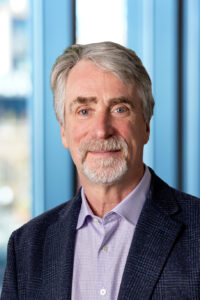Happy Safer Internet (Metaverse) Day

Sub Title: Every year on the second Tuesday in February, the world celebrates Safer Internet Day. SID, as it is affectionately known, began as a European Union initiative in 2004 and has now spread to over 170 countries. What the forward-thinking Brussels bureaucrats could not have imagined, however, is how much the Internet would change in these intervening years.
Source:
Every year on the second Tuesday in February, the world celebrates Safer Internet Day. SID, as it is affectionately known, began as a European Union initiative in 2004 and has now spread to over 170 countries. What the forward-thinking Brussels bureaucrats could not have imagined, however, is how much the Internet would change in these intervening years.
Eighteen years ago, we were on the cusp of what became known as Web 2.0 or the dawning of social media and user-generated content. Sites like MySpace upended what we thought of as websites – moving from static pages of content to dynamic and ever-changing profiles created by “users.” And, for the first time, kids were creating the content we used to try to keep them away from and doing so on “smart” phones that could be taken anywhere and accessed anytime.
Fast forward to today and we find ourselves looking out at a very different landscape. Many of the “traditional” safety concerns are still with us – from cyberbullying to misinformation, and overuse to oversharing. Even so, in our own research we found that Generation Z showed widespread enthusiasm for connected life, with 89% reporting they like using social media and 87% excited about the impact technology will have on the future.
The picture is mixed, however, when it comes to safety. Most Gen Z users find managing their online safety to be overwhelming. 60% of parents feel they can’t keep up with the changes happening online. And, not surprisingly, three out of five Gen Z respondents say they teach their parents more than they teach them about online safety.
While the current state of the digital world can feel like both a boon and a bane, what will the next eighteen years bring? Can we imagine what the online world of 2040 will look like, and will we be celebrating or commiserating on SID that year?
If all the hype is to be believed, we will soon be entering the next phase of the Internet, which many refer to as the “metaverse.” It is a word coined by the science fiction writer Neal Stephenson in his novel “Snow Crash” and further explored in the novel and movie “Ready Player One”, where people in a post-apocalyptic society spend most of their time in a virtual reality world called “The Oasis” which they access using VR headsets.
Anyone who joined Second Life will be familiar with the concept of moving an avatar around buildings, street scenes, homes and gardens all the while interacting with other avatars. And many massive multiplayer online games like World of Warcraft and the Roblox platform have their own currency that can be earned and then exchanged for virtual clothes, equipment and weapons. In many ways, the metaverse is already here, it’s just not very evenly distributed.
One company is so convinced of this future, it even changed its name from Facebook to Meta. Mark Zuckerberg has shouted from the virtual rooftops that we will all be donning headsets, augmented reality glasses, and using ordinary laptops and phones to live, work, play and socialize in these new alternate realities. His definition is instructive: “The metaverse will provide a persistent, synchronous environment where people can be together – a hybrid between the social platforms we see today, but an environment where you’re embodied in it.
There’s even a new strain of philosophy to explain and explore the metaverse. David Chalmers’ new book, “Reality+” dives headlong into fundamental questions about the nature of virtual objects and experiences. At one point he states, “My guess is that within a century we will have virtual realities that are indistinguishable from the non-virtual world.” He even questions whether we’re not already in a simulated reality.
As challenging as social media can be for young people to navigate, the metaverse, in whatever shape it eventually takes, will throw up new risks and novel categories of harm. It will also present unprecedented opportunities and rewards for us and our children. We are at a tipping point in the development of the Web and a more “embodied” future is what lies ahead. Perhaps next year, we will celebrate Safer Metaverse Day, with the task of preparing the next generation of users (and their parents) on how to stay safe, civil and secure in these new virtual worlds.

 Stephen Balkam
Stephen Balkam